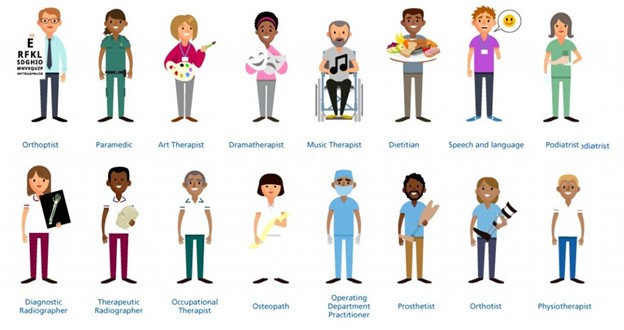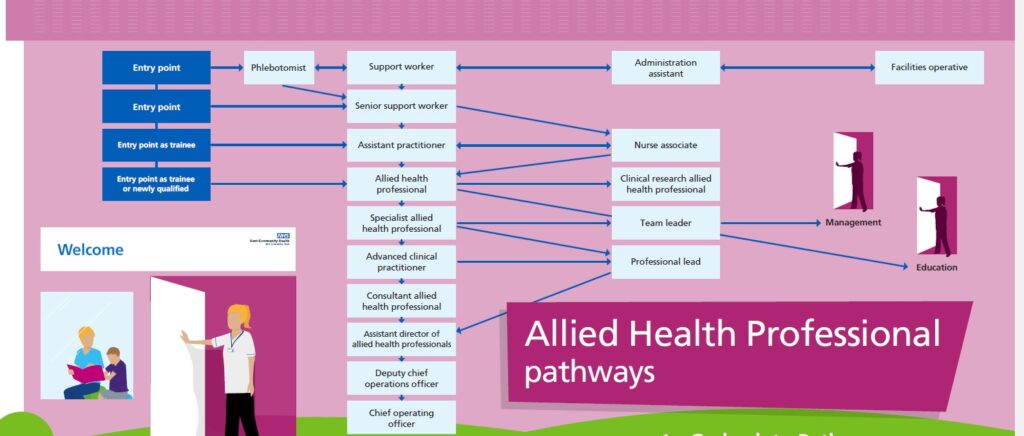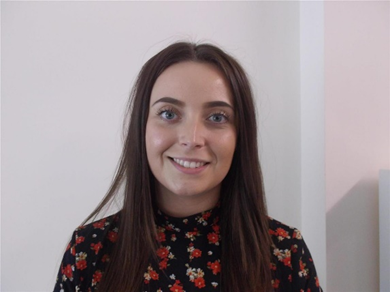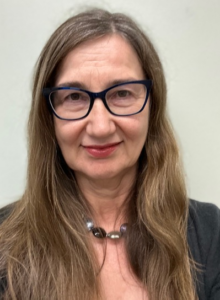Welcome to the Kent and Medway Health and Care Academy staff network.
This page is for all of those in Kent and Medway who work in the allied health professions, or will soon be working in the allied health professions.
Information and Updates
The Health and Care Professions Council (HCPC) is the regulatory body for the 15 professions listed under the allied health professionals.
The HCPC:
- set standards for professionals' education and training and practice
- approve programmes which professionals must complete to register with it
- keep a register of professionals, known as 'registrants', who meet its standards
- take action if professionals on the register do not meet the standards.
You can find out more information about the HCPC, the set standards it has in place, registration information, news and updates and continuing professional development on its website. Click the image below to be directed to the HCPC website.

Looking to progress in your career or complete further education?
This diagram from Kent Community Health Foundation Trust shows some of the pathways available for those who are looking to progress in their profession.
Apprenticeships are a great way to develop the skills, knowledge and behaviours that employers need to progress in your career. In Kent and Medway, you can do an apprenticeship in occupational therapy, physiotherapy, diagnostic radiography, advanced clinical practice, healthcare support worker and many more. Apprenticeships are available from Level 2 (equivalent to GCSE's) to Levels 6 and 7 (equivalent to a full bachelor's or master's degree.) So there is often an apprenticeship available at every level of your career.
Visit our apprenticeships page to find out more.
Find out more about apprenticeships for AHP support workers.

Hear from some of Kent and Medway's allied health professionals
Emma Rosemeyer, Lead occupational therapist at Combat Stress
How would you describe your current role?
I am the lead occupational therapist for the Intensive Treatment Service working with Combat Stress, a UK charity for veterans’ mental health. For more than a century, it has helped former servicemen and women with mental health problems such as post-traumatic stress disorder (PTSD), anxiety and depression. Combat Stress has an outpatient/online service and an Intensive Treatment Service, which includes a three-week residential stay at a treatment centre in Leatherhead, Surrey.
I work alongside an Interdisciplinary Team which includes clinical psychologists, psychiatrists, registered mental health nurses, recovery support workers and peer support workers. I enjoy the flexibility of my hybrid role. There is a mix between working from home and working with veterans face-to-face in the treatment centre.
Post-traumatic stress disorder, low mood, anxiety and physical impairments can turn everyday activities into challenges which can reduce veterans ability to participate in the daily tasks and activities that are important to them. I work with veterans to find meaningful and purposeful activities to add to their lives to give a balance between productivity, leisure and self-care. In occupational therapy, we look at different areas in a person's life and work out what can be done to improve them. Our philosophy is to find out ‘What matters to you?’ instead of ‘What is the matter with you?’. One of the interventions we use is sensory modulation. This is an approach that uses our senses to change how we feel and supports self-regulation.
My role is very varied and unique... every day is different. I like this about the role as it helps to keep me motivated. Alongside my occupational therapy role, I support the wider team with more generic work such as screening of new referrals and full clinical assessments. I am part of the service quality and performance group, which involves preventing and managing risk within the charity, auditing and exploring how the charity is demonstrating that we meet the CQC key lines of enquiry requirements. I am involved in a large majority of service development. We completed the pilot of the intensive treatment service in summer 2022, and I was involved in the development and evaluation group. I also get to work a lot with our fundraising team at Combat Stress, supporting them with open days and corporate events. I am a clinical supervisor and line manager and have just taken on a second-year student on the BSc (Hons) occupational therapy apprenticeship course from University of East London.
What do you enjoy about working for a charity?
I have been fortunate enough to get a lot of training with the charity. Most recently I have completed my sensory-enhanced yoga for self-regulation and trauma healing training and R.E.S.T (routine, environment, stimulation control and thinking) second generation cognitive behavioural therapy for insomnia training with Dr David Lee. As we are a charity we are constantly evolving and ensuring we provide the best service possible. Every clinical intervention we use is evidence based and we have our own research team.
What are you most proud of in your role?
I am most proud of working with veterans and being able to support them to create a more meaningful life. They were prepared to give up their lives to serve and fight for our country, so it is extremely rewarding to be able to give back to them and make a real difference to their lives. My dad is a military veteran himself, so it is also a way of me giving back to him and making him proud.
How did you get here?
Unfortunately, I didn’t get the A-Level grades I needed to get into university. I had to do some personal research to find other paths which could lead me to the occupational therapy undergraduate degree. Luckily, I found the access to healthcare professions course at my local college. This course increased my confidence hugely and really prepared me for university. I passed the course with a distinction and was offered a conditional offer at Brunel University to start the a degree. I would highly recommend an access course to anyone thinking about a degree in healthcare as it not only provided me with academic support, but I also met some amazing people from all walks of life.

My career in dietetics
Eleanor Baldwin, Diabetes Specialist Dietitian and Team Lead - Maidstone & Tunbridge Wells NHS Trust
I decided to train to be a dietitian when I was in my last two years of school. I was a bit of an all-rounder at school but particularly liked English, history and biology. I was attracted to the idea of training to be a dietitian because I could see that you could do lots of different things as a dietitian. My 35-year career as a dietitian has involved lots of different experiences as you will see.
I studied at Queen Margaret College, Edinburgh and trained at St. George's Hospital in London and Freeman Hospital in Newcastle. As a student, I volunteered on the Diabetes UK children’s camps, where you work with other volunteers in a residential holiday venue, carb counting meals and helping to teach the children how to manage their diabetes. I had a holiday job as a metabolic diet cook in Stanmore Royal National Orthopaedic Hospital so I could finance staying in London before I returned to college to finish my degree. I also worked in a travelling pantomime, which toured long stay hospitals and homes but the only dietetics that involved was dodging a thrown apple because I was playing a wicked witch which a resident took rather too seriously!
My first post-graduate job was a rotational role at Charing Cross Hospital in London. Every six months you changed the principle speciality you were working in. This was a great opportunity to learn more about renal dietetics, paediatrics and diabetes. The diabetes team there were great and gave me the opportunity to design a mixed meal tolerance test for an oral insulin study and to write the diet parts in a patient handbook for type two diabetes and for type one diabetes.
My next job was as a diabetes specialist dietitian in Roehampton. The lead nurse and consultant had fundraised to kit out an old factory as a diabetes education day centre. They were very keen on diabetes education and were setting up a diploma in diabetes for health care professionals which I was able to write the dietetic syllabus for. I really enjoyed meeting other health professionals who were trying to improve diabetes care in their own areas. At the time, there was no further education course for dietitians, so I was fortunate to be able to use the education contacts I had and network with other dietitians in the diabetes interest group of the British Dietetic Association to set up a course, which ran successfully for some years. I like writing so when I noticed lots of patients were following fad diets, I wrote my first journal article on fad diets in diabetes which was published in Practical Diabetes International.
I met my husband at the end of my 20s and had two sons which meant I wanted to spend less time at work and more time with my family. I took a part-time job as a diabetes specialist dietitian at the Chelsea and Westminster Hospital in London. Part-time work in the NHS gave me clinical supervision and lots of learning opportunities in a number of specialities. I was able to build up a private practice and do some freelance work during term time. My freelance contracts included the British Heart Foundation as a team lead on their roadshow, a diabetes educator role for Tower Hamlets year of Diabetes Community initiative and a private bariatric surgery company. At the Chelsea and Westminster Hospital I had several part-time roles – I was a diabetes specialist dietitian, a bariatric specialist dietitian, an eating disorders dietitian, a research dietitian and a specialist in a rare fatty acid oxidation disorder called Adult Refsum’s Disease. These different roles involved teaching other health care professionals, writing research papers, presenting at conferences, training students and helping thousands of people to learn practical ways to live with their physical or mental health conditions.
I moved to Kent with my family 12 years ago. My children became adults and left home. A part-time diabetes locum job in Tunbridge Wells eventually led to a maternity leave diabetes part-time job which led to my current role. My research work in Adult Refsum’s disease led to an honorary contract with St. Thomas’s Hospital and some unpaid, but very fulfilling, work for a charity called Global Dare.
Life as a dietitian has lived up to it’s promise of a varied and interesting career.

Find an AHP role in Kent and Medway
Use the health careers course finders to see what allied health professional courses are available in your local area.
Visit our vacancies page to see what AHP roles are currently being advertised in Kent and Medway
Join the Kent and Medway allied health professional network
Click the image below to be directed to the Kent and Medway allied health professional network on NHS futures.
List of professional bodies
Paramedics are the senior ambulance service healthcare professionals at an accident or a medical emergency. Paramedics are responsible for assessing the patient’s condition and then giving essential treatment. They use high-tech equipment such as defibrillators, spinal and traction splints and intravenous drips, as well as administering oxygen and drugs.


